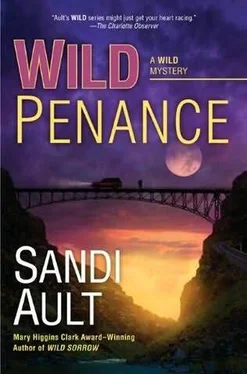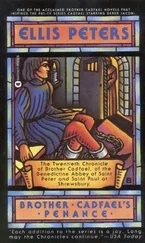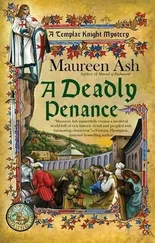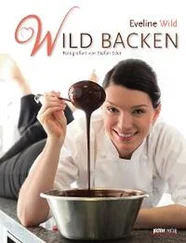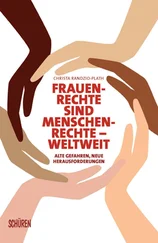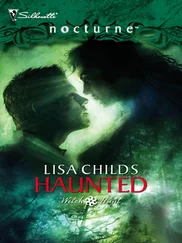I turned back to Manny, who was disappearing into the snow. The figure of Christ had fallen from the crucifix and landed facedown on his chest. Beside him, a white covered mound that had once been Andy Vincent was topped with a tilted cross.
I ran to Redhead, who was lying on her side on the ground, blood draining from a hole in the front of her chest. Her eye was looking at me-a polished black globe full of fear and love. Her breathing was fast and rasped with the sound of fluid. She tried to lift her head as I came to her and threw myself onto her shoulder, my arms over her neck and head. Her neck quivered, and she tried to paw once. I lay there sobbing into her cheek as she drew her last warm, watery breath and exhaled with a deep, releasing sigh.
“Redhead!” I screamed. “No, no, nooooo !”
Hands clutched my arms and tried to pull me from her. I turned and saw Kerry’s face beneath a hat brim covered with snow. “Come on, Jamaica. We’ve got to get out of here while we can.”
I turned back to Redhead and buried my face in her mane. “I can’t leave her! I can’t leave her here!”
“Come on, Jamaica,” he said, pulling me upright. “She’s gone.”
The Secret
There was almost no traffic on the roads of Taos on the morning of Good Friday. Snow covered the tops of buildings and cars and turned shrubs into white balls of soft cotton. The trees were heavy and silent in their thick, white coats and stood like sentient pillars, supporting the close ceiling of clouds. It was as if the whole world had fallen asleep under a blanket of white and lay there still as a child.
Kerry and I had retrieved La Arca from the lockbox at the ranger station. I held it to me and looked around before we went inside his apartment. There was not another soul in sight.
I set the bundle on the table, and Kerry helped me off with my coat. My face hurt from being roasted by fire, then frostbitten in the blizzard. A swollen knot inside my mouth just beneath my lower lip throbbed painfully. And my throat was bruised where Andy had shoved the rifle barrel against my jawbone. I was dehydrated, my lips were cracked from chapping, my back ached from pushing Manny across the morada. My whole body hurt.
“I’ll make us some coffee,” Kerry said, dropping my coat on his bed.
I waited for it slumped in a chair, my emotions dulled by deluge. While the coffee brewed, he brought me a glass of water. As I sipped, I looked around the room again at the photographs he had made. “These are so beautiful,” I said and took another drink of water.
“You like my work, then?”
I tried to smile. Ouch. “You know I do.”
“Your mouth hurts?”
I nodded.
He picked up a dish towel, walked to the door, and opened it. He stepped outside, disappeared for a moment, then came back in, wiped his feet, and came over to me. He gently lifted my chin.
“Ow! Don’t touch under there!”
“Which hurts more? Your mouth or your chin?”
“My mouth. No, my chin. I don’t know…”
He put the cloth, packed with a handful of snow, against my mouth. It hurt. Then it felt better. “Here, take this. I’ll go get our coffee.”
I drank in the calm, the quiet. After we had made our way down the treacherous Forest Service road from the conflagration and carnage, Kerry and I had spent the night at the ranger station giving statements and filling out paperwork. The blizzard had delayed everything, and a snowplow was supposed to make its way up the mountain today to create access so officials could even get to the Forest Service road. It might be another day or two before the bodies could be carried out. “Poor Manny,” I said. “Poor Redhead.” I began to cry.
“Yeah.” He brought steaming coffee, set it on the table, examined my swollen, tear-streaked face. “Poor Jamaica.”
I tried to smile. “Do you have any sage?”
“You mean for smudging?”
“Yes, you know-a smudge stick, anything.”
“I have some local, from the pueblo.” He went to his dresser and brought a fat thread-bound sage bundle to me. “I’ll get some matches.”
We smudged La Arca, the room, ourselves. Then we sat down together at the table and I began to untie the horsehair rope. I told Kerry the story that Theresa Mendoza had told me, and also what I had learned from my trip to the Taos library.
“Am I allowed to see it?” he asked, respectfully.
“I don’t know why you couldn’t see it. They display it in the church on Easter Sunday in Truchas. But I would rather you didn’t touch it.”
“I won’t. I understand.”
When the mecates were undone, I stopped to compose myself. Just as Theresa Mendoza had done, I closed my eyes and drew within. I said a silent prayer to anyone who might be listening that I would be guided to do whatever was best. Then I drew back the embroidered cloth.
Kerry inhaled deeply, his chest rising, his eyes like moons. “It’s beautiful! Wait! Let me get my camera!” He moved to get up.
I shot out my hand to stop him. “No, don’t.”
“But… for your book? Wouldn’t you like a picture of it for your book? You said it’s all right for people to see it.”
“No. I don’t want a picture of it. Then people will come in droves to see it, maybe even try to steal it. I don’t want you to photograph it.”
“Okay.” He sat back in his chair. “Now what?”
“Now you go take a shower or something. Let me know before you plan to come back into this room.”
“Yes ma’am,” he said, saluting as he got up.
La Arca unfolded her secrets to me that morning in the cool, gray light of Kerry’s apartment. The smoke from the sage we had burned floated in a heavy haze in the soft hues of a snowy dawn. The sound of Kerry’s shower was like a distant, constant drumroll accompanying this ceremony honoring the victory of Passionate Faith over Evil.
Within, La Arca was lined with old black velvet, crinkled and shiny with age. Antique photos showed above the lip of a velvet pocket in the lid. Some of these were quite large and made from old silver or copper plates. As I removed them, I read the dates the photographers had etched right on the plates in scrawling white handwriting: 1895, 1898, 1902. There were also several stacks of small zigzag-edged photos that had been made sometime later than the larger ones, their corners just peeking out above the pocket top. I pulled them from their nests and placed them in three piles on the table.
In the body of La Arca, a small, ancient-looking brown book rested on top. I picked it up carefully and examined it. It was a cuaderno-a compact book written entirely by hand, including the words to the alabados-the hymns, written text of the teachings of the brotherhood, their prayers, chants, plays, sayings, rules. I thumbed through the yellowed, brittle pages, examining the elegant handwriting, the hand-sewn binding of woven cloth. It was written entirely in Spanish. I looked through page after page. I found the expression Father Ignacio had quoted at our meeting in Santa Fe, heard his melodious accented voice in my mind: ¡Ayuda a otros y Dios te ayudará! Help others and God will help you. It is an old Penitente saying.
This cuaderno reminded me of my own handwritten, hand-drawn book. Cuadernos like the one I was holding were the means by which Los Penitentes had conveyed their culture and faith from generation to generation. Many Hispanos learned to read and write using their cuadernos. The old books were so rare now that only one was known to exist from before the turn of the century-because when they became worn, new ones were made and the old ones destroyed. This was probably a priceless artifact. But I put the book beside the photographs. It was not what I was looking for.
Читать дальше
